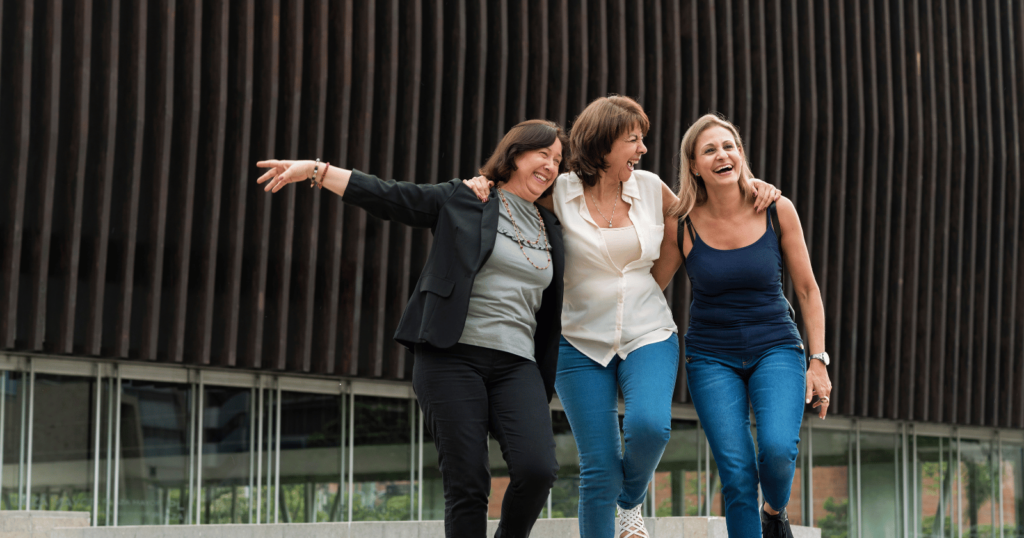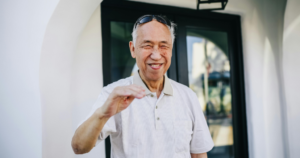Ever run into an old friend and think, “How on earth do they still look like they did fifteen years ago?”
I’ve had that moment more than once. And let me tell you, it’s not always about fancy creams or cosmetic tweaks. More often than not, the people who seem to defy time have a few simple daily habits they swear by.
Now, I won’t pretend I’ve cracked the code to eternal youth (and frankly, I’m not sure I’d want to), but I’ve been paying close attention to what helps people stay vibrant—mentally, physically, emotionally—as the years roll on.
I’ve watched friends in their seventies outpace those in their fifties, and it’s made me rethink what we often assume about “getting old.”
Let’s dig into these habits. You might be surprised at how doable they are.
1. They get outside every day—even when it’s cloudy
There’s something about fresh air that resets the spirit. I’ve said it before, but a daily walk can do wonders. And I don’t just mean for your legs.
Exposure to natural light—even when the sun’s playing hard to get—helps regulate your circadian rhythm. That rhythm, in turn, affects everything from sleep quality to hormone balance, immune health, and even appetite.
The research backs this up. According to the National Institute on Aging, older adults who spend regular time outdoors tend to experience improved memory, better sleep, and fewer feelings of depression.
Me? I take Lottie (my dog) for a stroll through the park most mornings. Rain or shine. I wave at the regulars, chat with the kids playing by the pond, and let my mind breathe.
It’s a simple ritual, but it sets the tone for the whole day. It’s where I do some of my clearest thinking and deepest breathing.
Even just 20 minutes can help reset your nervous system. So if you’re not getting outside daily, consider this your invitation.
2. They’re picky about what they consume—mentally and nutritionally
We all know that diet matters, but what we often forget is that mental nutrition is just as important.
People who age well aren’t just eating their greens—they’re also mindful of the emotional and intellectual food they’re feeding their brains.
Let’s start with the obvious: they eat whole foods. Leafy greens, healthy fats, lean proteins, nuts, berries—you know the drill.
But they’re also the kind of folks who enjoy their meals, savor their tea, and make a habit of sitting down to eat instead of rushing around with a granola bar in hand.
But what really sets them apart is their media diet.
They’re careful about what they watch, read, and scroll through. They avoid constant negativity and fear-driven headlines. They stay informed, sure, but they don’t let the noise of the world drain them.
As Winston Churchill once said, “Healthy citizens are the greatest asset any country can have.” That includes mental health too.
So maybe it’s time to trade the late-night news cycle for a good book, or that angry social media scroll for a walk or meaningful chat. Your mind (and wrinkles) might just thank you.
3. They prioritize sleep like it’s their job
Sleep is one of those things that’s underrated until it goes missing. If you’ve ever spent a week sleeping badly, you’ll know exactly what I mean.
People who age slowly don’t mess around when it comes to sleep. They keep a regular bedtime, limit screen time before bed, and create little routines that tell the body, “It’s time to wind down.”
A study out of UC Berkeley found that deep sleep helps with memory consolidation and cellular repair.
In other words, your brain and body do their best maintenance work while you’re asleep. If you’re not getting enough, you’re missing out on some of nature’s best anti-aging strategies.
I’ve found that reading a few pages of a well-worn book and sipping on some chamomile tea does more for my sleep than any expensive gadget. It’s about rhythm and ritual. The body craves both.
If you’re struggling with sleep, start by going to bed at the same time every night. It sounds simple—and it is—but it works wonders.
4. They stay socially connected
Loneliness ages a person faster than just about anything else. I’ve seen it happen. And I’ve seen the opposite too—people who stay surrounded by community and connection seem to glow with a different kind of energy.
One of the longest-running studies on aging, conducted by Harvard over eight decades, found that strong relationships are one of the best predictors of long-term health and happiness. Not wealth. Not fame. Relationships.
That doesn’t mean you need dozens of close friends. It means you need a few people you can call, laugh with, and confide in.
Regular interaction—even a short chat on the phone—can reduce stress hormones and increase life expectancy.
I make it a point to catch up with friends each week, even if it’s just over a shared crossword puzzle or a walk around the neighborhood. It keeps me grounded and gives life a little more texture.
5. They move their bodies, but they’re not obsessed about it
The people I know who are aging well aren’t killing themselves at the gym. They’re consistent, not intense. They walk, stretch, garden, swim, cycle—whatever keeps the joints limber and the blood flowing.
One of my neighbors, Pete, is in his late seventies. Every day, without fail, he walks to the library and back. That’s about three miles round trip.
He’s not racing anyone, but he’s out there, rain or shine. And you know what? His posture, gait, and energy are better than folks twenty years younger.
As the old saying goes: motion is lotion—for the joints, the muscles, and the soul.
Even ten minutes a few times a day adds up. And it’s not about hitting step goals. It’s about staying in motion.
6. They practice gratitude and don’t dwell on regrets
There’s something quietly powerful about people who choose gratitude. They don’t deny life’s hardships, but they don’t let bitterness take root either.
This kind of mindset takes practice, but it pays dividends. Psychologists have found that people who regularly practice gratitude experience fewer aches and pains, sleep better, and have lower levels of stress.
Brené Brown puts it beautifully: “Practicing gratitude invites joy into our lives.” That joy shows up in how people move, speak, and respond to the world. It softens the furrowed brow and lightens the eyes.
You can keep a gratitude journal, sure, but sometimes all it takes is saying “thank you” more often. Thank you for the morning light. Thank you for warm socks. Thank you for the chance to begin again.
It might sound simple, but it’s transformative.
7. They challenge their minds in playful ways
I’m no know-it-all, but I’ll say this: your brain needs novelty. The people who seem to stay sharp and youthful are often the ones learning new things well into their later decades.
They try Sudoku. They take up painting. They learn how to cook new dishes or speak snippets of another language.
One gentleman I know started playing the ukulele at 70. He’s now part of a band that plays at local retirement homes. He told me, “I picked it up just to kill time, but now it makes me feel alive.”
A 2013 study from the Association for Psychological Science found that older adults who engaged in unfamiliar, mentally challenging activities showed increased memory and cognitive function.
In other words, learning new things literally makes your brain younger.
So don’t be afraid to look silly trying something new. That’s where the good stuff is.
8. They laugh. A lot.
And here’s one you might not expect. People who age slowly usually have a well-worn laugh. They find the funny in life’s chaos, the humor in their mistakes, and the joy in simple moments.
Laughter reduces stress hormones, boosts immunity, and even protects the heart, according to research from the Mayo Clinic.
It’s medicine, plain and simple. And it’s free.
Some of the people who’ve inspired me most over the years are the ones who’ve had it hardest—but somehow still manage to laugh with abandon.
They aren’t jaded. They’re real. And their faces, while marked with lines, radiate a kind of warmth no skincare can manufacture.
I try to follow their lead. Crack a joke. Watch a comedy. Laugh at your own forgetfulness. Let joy wrinkle you in all the best ways.
Final thoughts
I’m still figuring things out myself, but here’s what I know for sure: aging is inevitable, but how we age is—at least in part—up to us.
You don’t need a perfect diet or a personal trainer. What you need is rhythm. Mindfulness. Curiosity. And maybe a bit of silliness too.
So, let me ask you—what’s one habit you can begin tomorrow that your future self will thank you for?
Let that be your first step.
After all, it’s the small things, done daily, that make the biggest difference over time. And who knows? The next time an old friend sees you, they might be the one doing a double take.
















